Los Angeles (AFP) – A US jury on Monday ordered chemical company Monsanto to pay $857 million to seven people at a school in the western state of Washington who said they were sickened by chemicals leaking from light fittings.
Issued on: 19/12/2023

ADVERTISING
The ruling is the latest legal setback for Monsanto, which is already grappling with hefty legal bills after losing court cases over its glyphosate-based weedkiller Roundup.
The jury said the company, owned by German pharmaceutical giant Bayer, had sold the polychlorinated biphenyls (PCBs) found in the fittings that the group of students and parent volunteers at Sky Valley Education Center in the town of Monroe in Washington state claimed had made them ill.
It ordered the firm to pay a total of $73 million compensation and $784 million in punitive damages to the plaintiffs in the case.
Lawyer Felix Luna, representing the plaintiffs, told the jury Monsanto had engaged in years of subterfuge to cover up what they knew about the harmful effects of PCBs.
"Monsanto... never warned anyone that (PCBs) would outlast whatever they're put in," Luna said in his closing argument, according to a transcript of the case.
"They never warned anyone that when it gets in the body that they're metabolites for life, that they're neurotoxic... a hazard, or (that) PCBs could lead to systemic poisoning."
The jury found the company negligent and ordered varying amounts of compensation to the seven plaintiffs, with each also being awarded $112 million in punitive damages.

A spokesperson for Monsanto said the firm would appeal the ruling.
"We disagree with the verdict and will pursue posttrial motions and appeals to get this verdict overturned and to reduce the constitutionally excessive damages awarded," a statement said.
"The objective evidence in this case, including blood, air and other tests, demonstrates that plaintiffs were not exposed to unsafe levels of PCBs, and PCBs could not have caused their alleged injuries."
Polychlorinated biphenyls are man-made chemicals that were mainly used as coolants and lubricants.
People exposed to them can experience respiratory irritation, and scientists say the chemicals may contribute to some cancers.
In decades past, PCB-based fire safety liquid was used in the ballasts that provide the energy surge to turn on fluorescent lights.
Monsanto says it ceased using the chemical in 1977, two years before the US federal government banned their production because of evidence they accumulate in the environment, including in fish and meat used for human consumption.
A company source said the school district responsible for fixtures at Sky Valley Education Center had been warned for several decades that light fittings at the school were in need of an update to bring them into line with federal and state rules.

A 2016 report by US Senator Edward Markey said PCBs were prevalent throughout the nation's school buildings, with as many as 14 million students potentially exposed.
The German group Bayer -- the maker of Aspirin -- acquired Monsanto in 2018, a blockbuster $63-billion deal that quickly turned sour.
Bayer inherited Monsanto's legal woes in relation to Roundup, and has since faced a wave of lawsuits in the United States over claims it causes cancer -- an accusation that Bayer contests.
Of the 160,000 cases brought against the group in relation to the weedkiller, 113,000 had been settled or dismissed, according to Bayer, which has put aside $16 billion to cover the legal risk.
© 2023 AFP













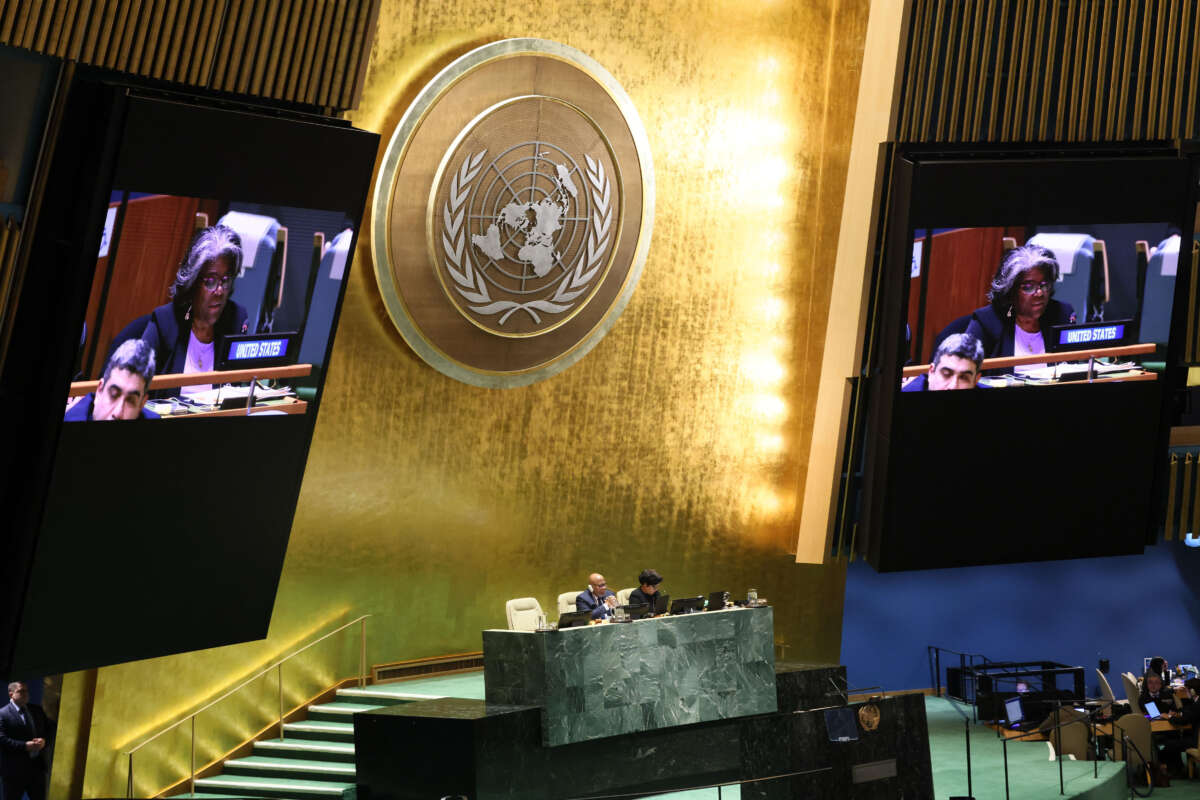 U.S. Ambassador to the United Nations Linda Thomas-Greenfield speaks during the UN General Assembly emergency special session on Israel's war at the United Nations headquarters on December 12, 2023, in New York City.MICHAEL M. SANTIAGO / GETTY IMAGES
U.S. Ambassador to the United Nations Linda Thomas-Greenfield speaks during the UN General Assembly emergency special session on Israel's war at the United Nations headquarters on December 12, 2023, in New York City.MICHAEL M. SANTIAGO / GETTY IMAGES

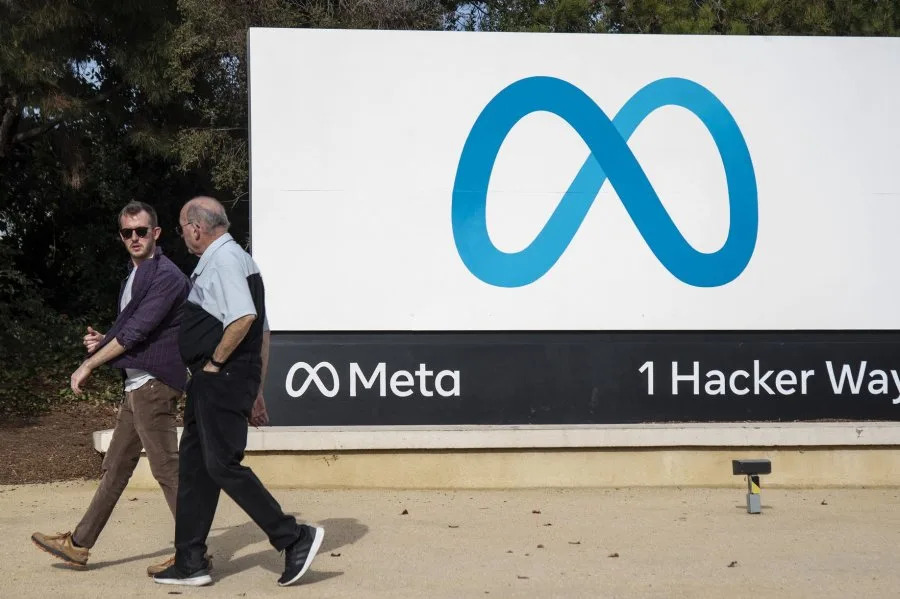
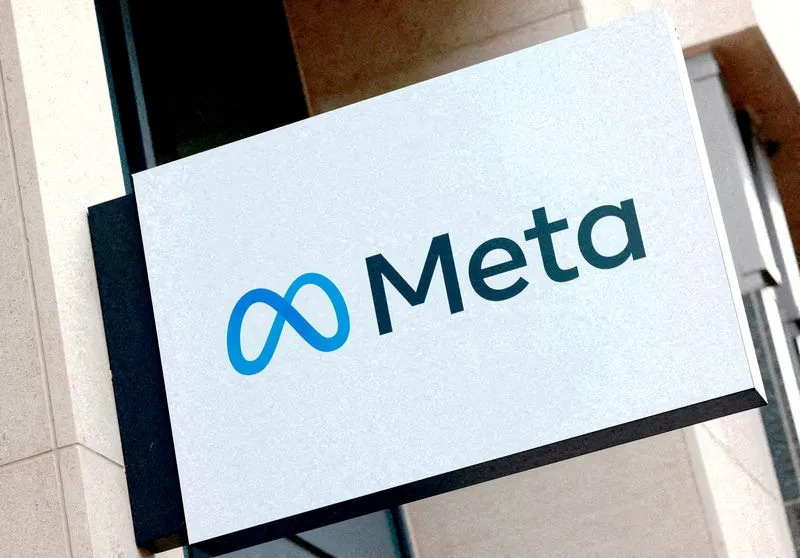
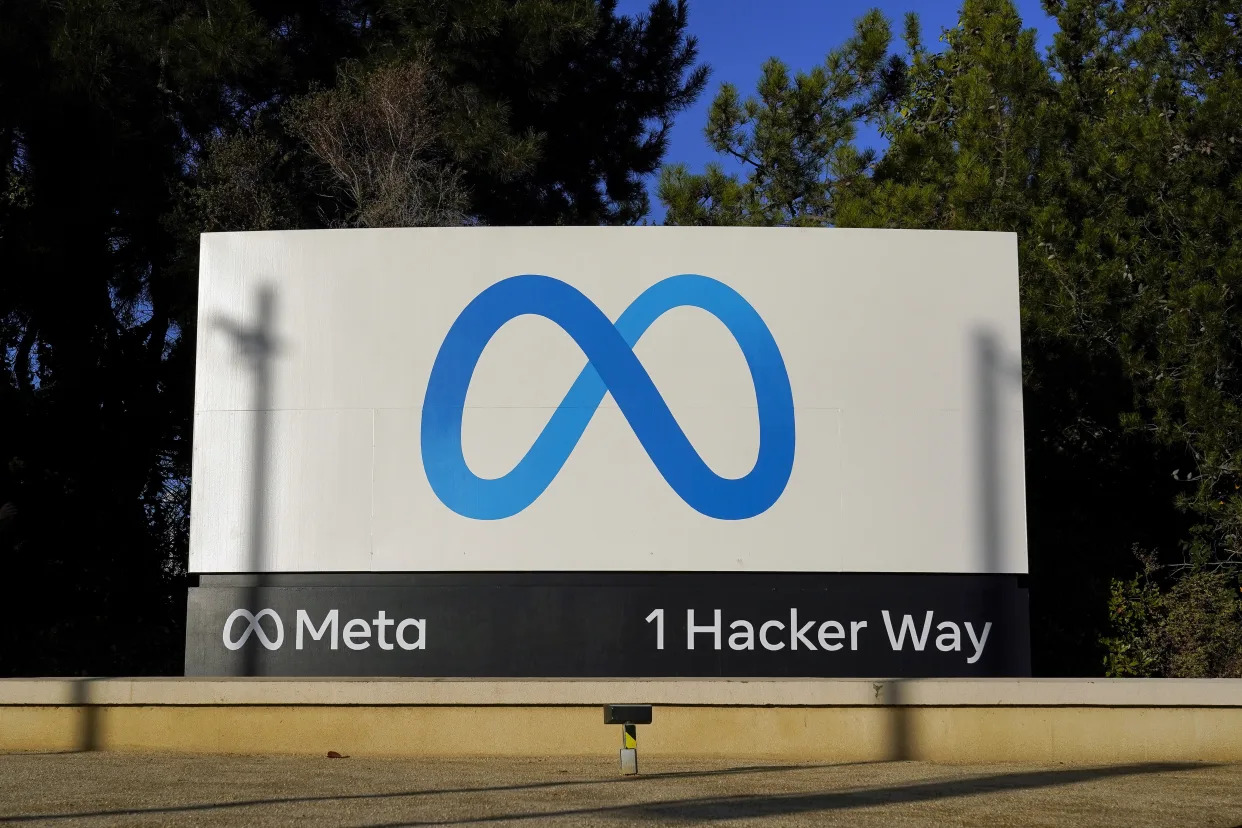


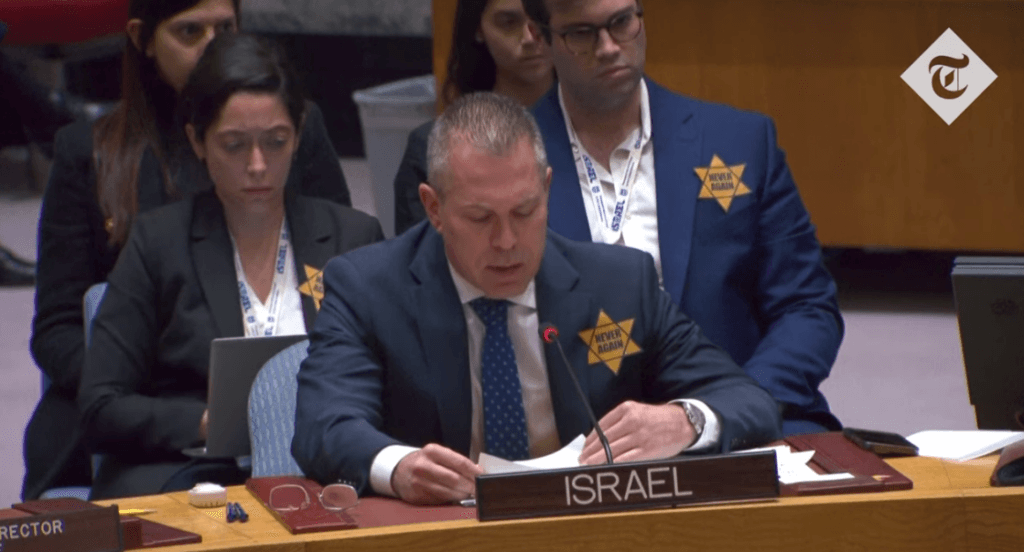 PERMANENT REPRESENTATIVE OF ISRAEL, GILAD ERDAN, AT THE UN WEARING A YELLOW STAR. (PHOTO: SCREENSHOT FROM VIDEO ON THE TELEGRAPH YOUTUBE CHANNEL)
PERMANENT REPRESENTATIVE OF ISRAEL, GILAD ERDAN, AT THE UN WEARING A YELLOW STAR. (PHOTO: SCREENSHOT FROM VIDEO ON THE TELEGRAPH YOUTUBE CHANNEL)
